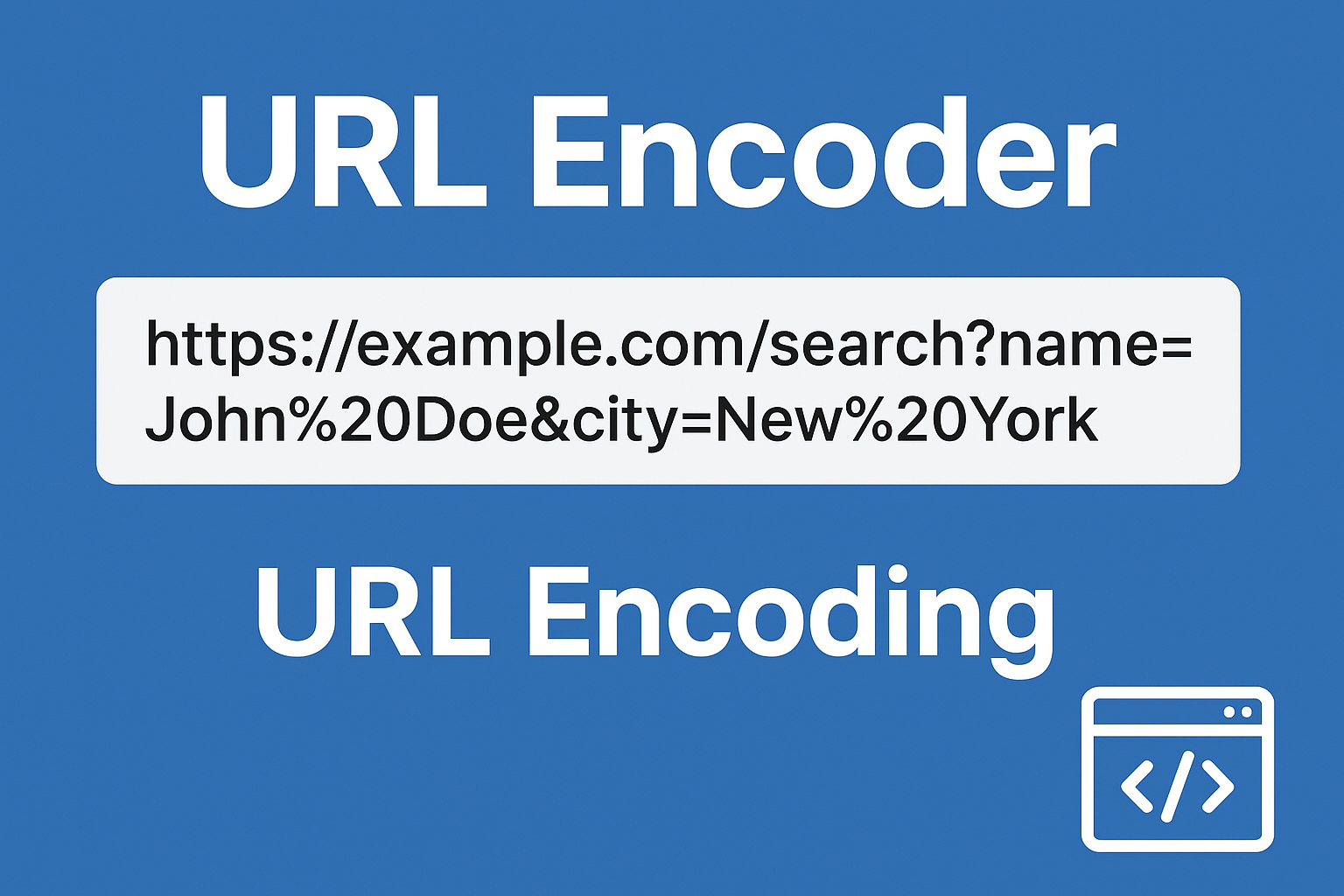
URL encoder
Created on 2 October, 2025 • Converter Tools • 71 views • 2 minutes read
Learn what a URL Encoder is, how URL encoding works, and why it’s important for safe and error-free links. Discover common use cases, benefits, and online tools for encoding and decoding URLs.
URL Encoder: A Complete Guide to URL EncodingWhen browsing the web or sharing links, you might have noticed that certain characters in a URL appear differently. For example, spaces become %20, and special symbols like & or ? are transformed into encoded values. This process is known as URL Encoding, and it plays a vital role in ensuring that URLs are transmitted correctly across the internet. A URL Encoder is a tool or method that converts unsafe or special characters into a format that can be safely included in a web address.
What is a URL Encoder?
A URL Encoder is a software tool or online utility that transforms characters into a format suitable for URLs. URLs can only contain a limited set of characters, such as letters, numbers, and a few special characters like -, _, ., and ~. All other characters need to be encoded into a specific format, usually represented by a percentage sign % followed by a two-digit hexadecimal code.
For example:
Space → %20
& → %26
? → %3F
By encoding these characters, a URL Encoder ensures the link remains functional and can be correctly interpreted by browsers and servers.
Why is URL Encoding Important?
1. Prevents Errors in URLs
Without encoding, special characters might break a URL or cause unexpected results. For example, spaces or ampersands could confuse the browser about where a parameter ends.
2. Ensures Data Transmission
When data is sent through query strings, URL encoding ensures that all characters are transmitted safely without misinterpretation.
3. Enhances Security
Encoding prevents malicious injection of code or incorrect interpretation of characters, making URLs more secure.
How Does a URL Encoder Work?
A URL Encoder scans a string and replaces characters outside the safe range with their corresponding encoded values. For example:
Input: https://example.com/search?name=John Doe&city=New York
Encoded: https://example.com/search?name=John%20Doe&city=New%20York
Here, spaces are encoded into %20, ensuring the URL functions properly.
Common Use Cases of URL Encoders
Encoding Query Parameters
Search queries, form inputs, or user-submitted data often need encoding before being added to a URL.
API Requests
When sending data via APIs, encoding ensures that the request is valid and understandable to the server.
Sharing Links
URL encoding makes sure that long or complex links containing spaces and special characters remain clickable and accurate when shared.
Online URL Encoder Tools
Many online tools are available to help encode or decode URLs instantly. These tools are simple to use:
Paste your text or URL.
Click Encode.
Copy the generated safe URL.
Some advanced tools also offer URL decoding, which reverses the process to return the original text.
Conclusion
A URL Encoder is an essential tool for web developers, marketers, and anyone working with links. It ensures that URLs are safe, functional, and universally understood across browsers and servers. By encoding special characters, you avoid errors, enhance security, and improve the reliability of your web links.
If you regularly work with URLs, make sure to use a trusted URL Encoder tool to simplify the process and keep your links error-free.
Popular posts
-
Barcode readerMisc Tools • 160 views
-
Color pickerMisc Tools • 122 views
-
Exif readerMisc Tools • 117 views
-
SHA-256 generatorGenerator tools • 93 views
-
Ip LookupChecker Tools • 90 views